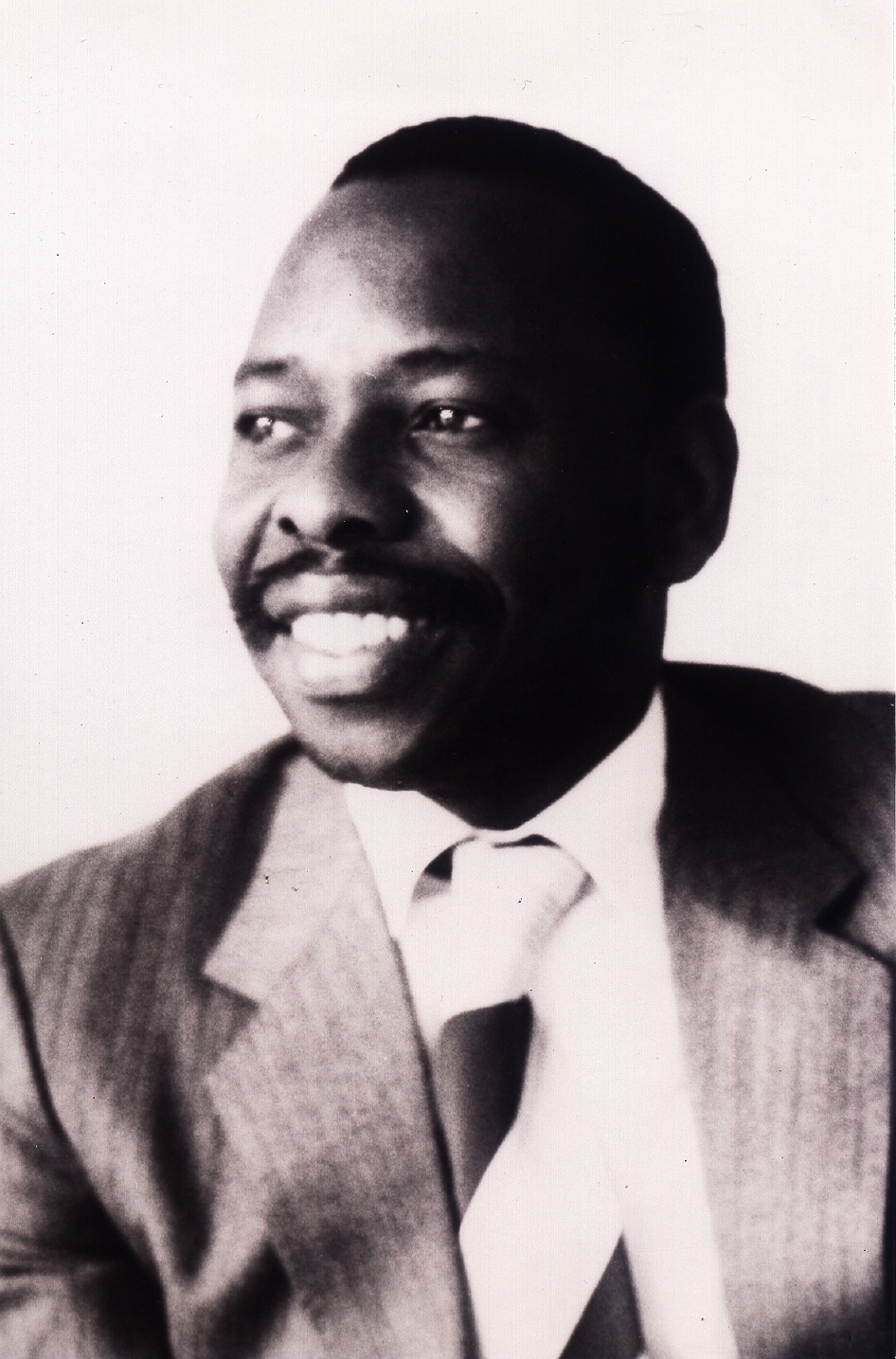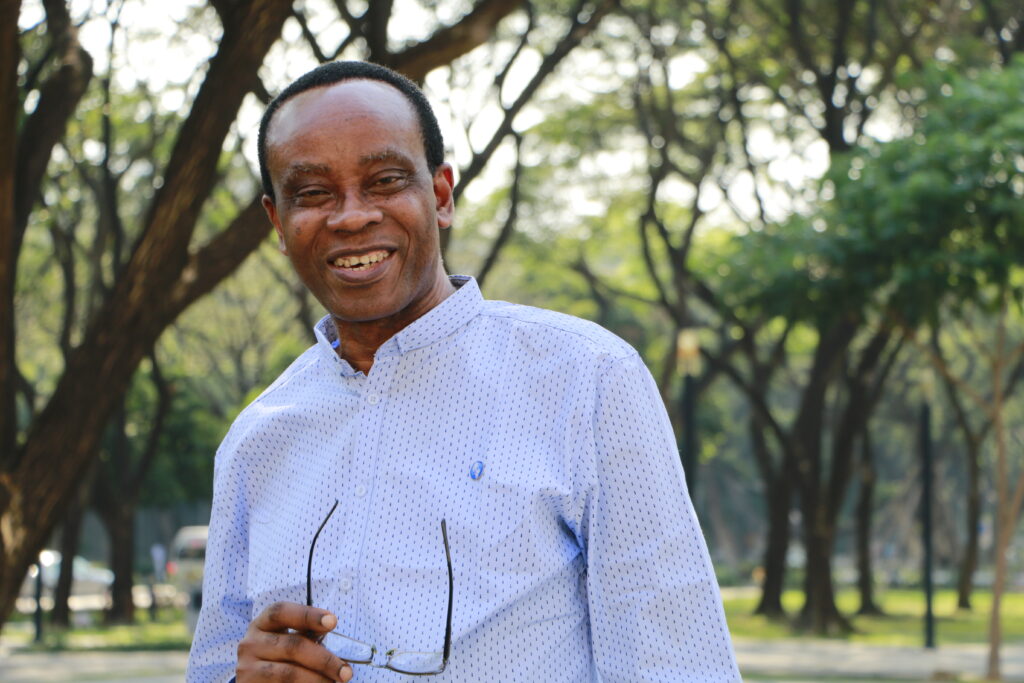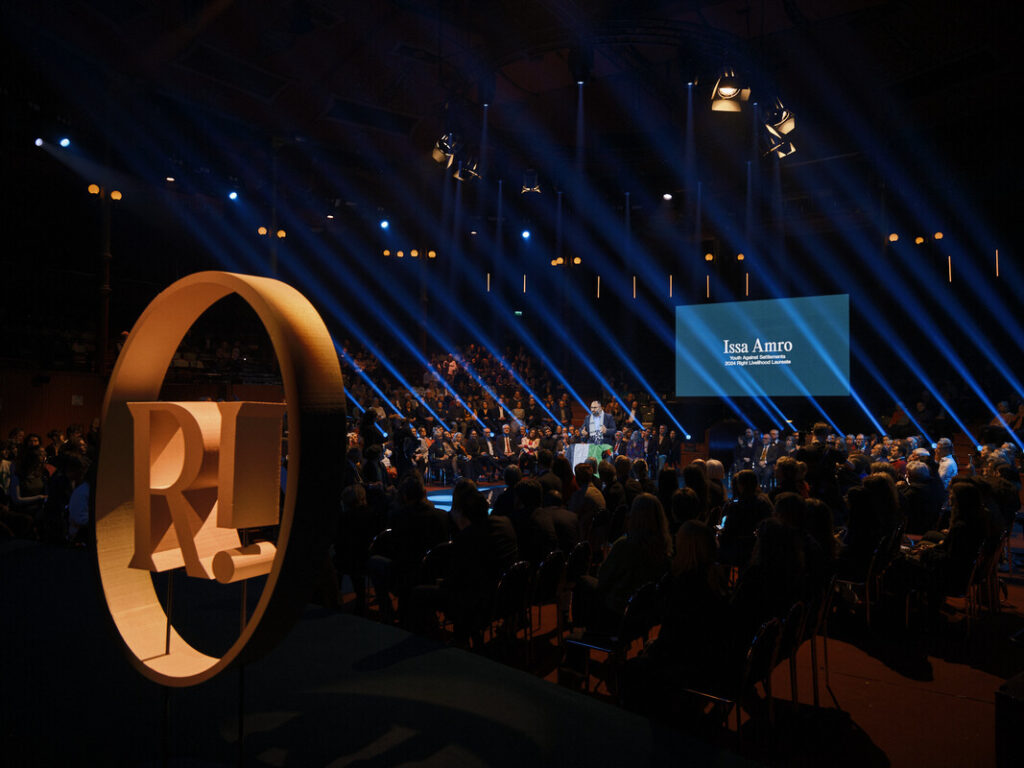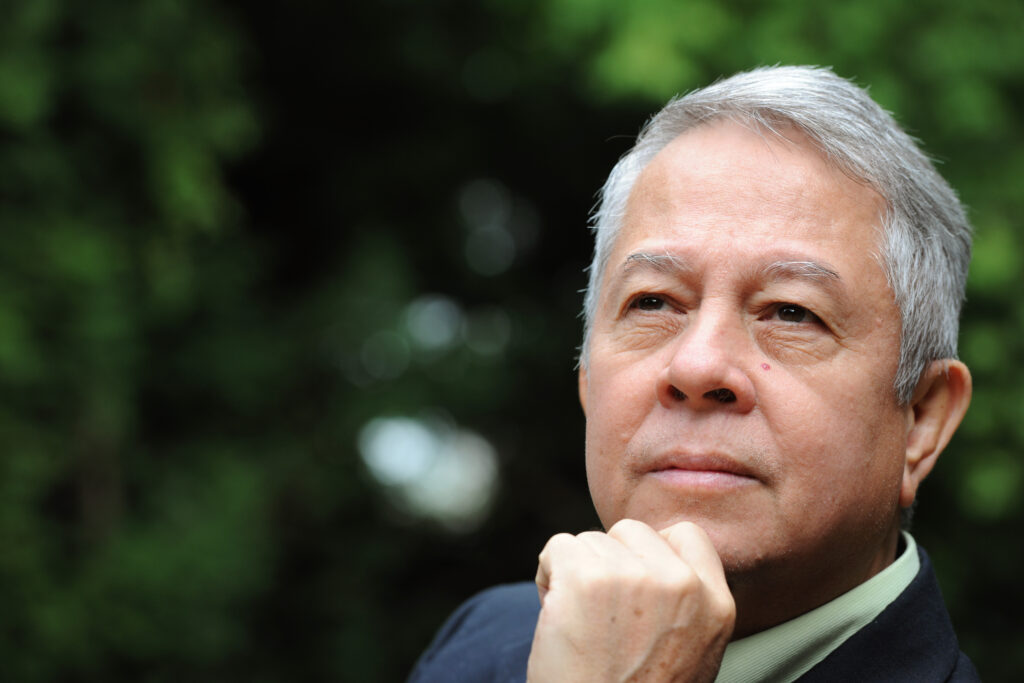STOCKHOLM – Today, November 10, marks 30 years since the execution of writer, environmentalist and Right Livelihood Laureate Ken Saro-Wiwa and eight other Ogoni leaders fighting the devastation of Ogoniland by large-scale oil extraction. Exoneration of the Ogoni 9 and accountability for oil companies are among the demands of fellow Nigerian environmentalist and Laureate Nnimmo Bassey, three decades after the judicial murders.
Ken Saro-Wiwa (1941-1995) was a leading member of the Ogoni tribe living in densely populated Ogoniland in south-eastern Nigeria. He was a central figure in the struggle to halt the devastation of the Niger Delta, which remains polluted by large-scale oil extraction, with the British oil company Shell as the largest private partner.
To combat these effects, the Movement for the Survival of the Ogoni People (MOSOP) was set up in 1990. Saro-Wiwa was arrested several times under the pretext that he had incited the murder of four Ogoni politicians. After a trial, which was condemned by international observers and described as judicial murder by the then British Prime Minister John Major, Ken Saro-Wiwa and eight of his colleagues were executed on November 10, 1995.
Fellow Right Livelihood Laureate and Right Livelihood Board member Nnimmo Bassey reflected on this anniversary and its enduring significance. Bassey, a long-time environmental justice advocate and Director of the Health of Mother Earth Foundation in Nigeria, said that 30 years on, there is still no closure.
“The Ogoni 9 must be completely exonerated of the false charges that were laid against them,” Bassey said in an email to Right Livelihood.
In 2020, on the occasion of the 25th anniversary of the execution, 30 Right Livelihood Laureates signed a petition to H.E. Muhammadu Buhari, then President of the Federal Republic of Nigeria, asking him to “exonerate the nine patriots hanged by the military dictatorship of General Sani Abacha following a kangaroo trial that received worldwide condemnation.”
Bassey, who is currently in Belém do Pará, Brazil, for the COP30 gathering, also called for solidarity with the Ogoni People, who still live with massive legacy pollution from Shell and its partners, and face current plans to reopen oil wells in the region.
Bassey condemned efforts by oil companies to evade responsibility for environmental destruction ever since.
“We reject efforts by Shell and other international oil companies to sell off their onshore facilities in the Niger Delta and move into deep offshore in a bid to escape accountability for the environmental genocide they have committed onshore,” he said. “The international community should join this call.”
As the world faces mounting environmental crises, Saro-Wiwa’s legacy remains a rallying cry for justice and global solidarity. His courage and vision continue to inspire ecological movements everywhere.
“Ken Saro-Wiwa showed what the fight against environmental injustice and colonial extractivism truly means,” Bassey noted. “His lessons must be amplified.”




























































































































































































































































































































